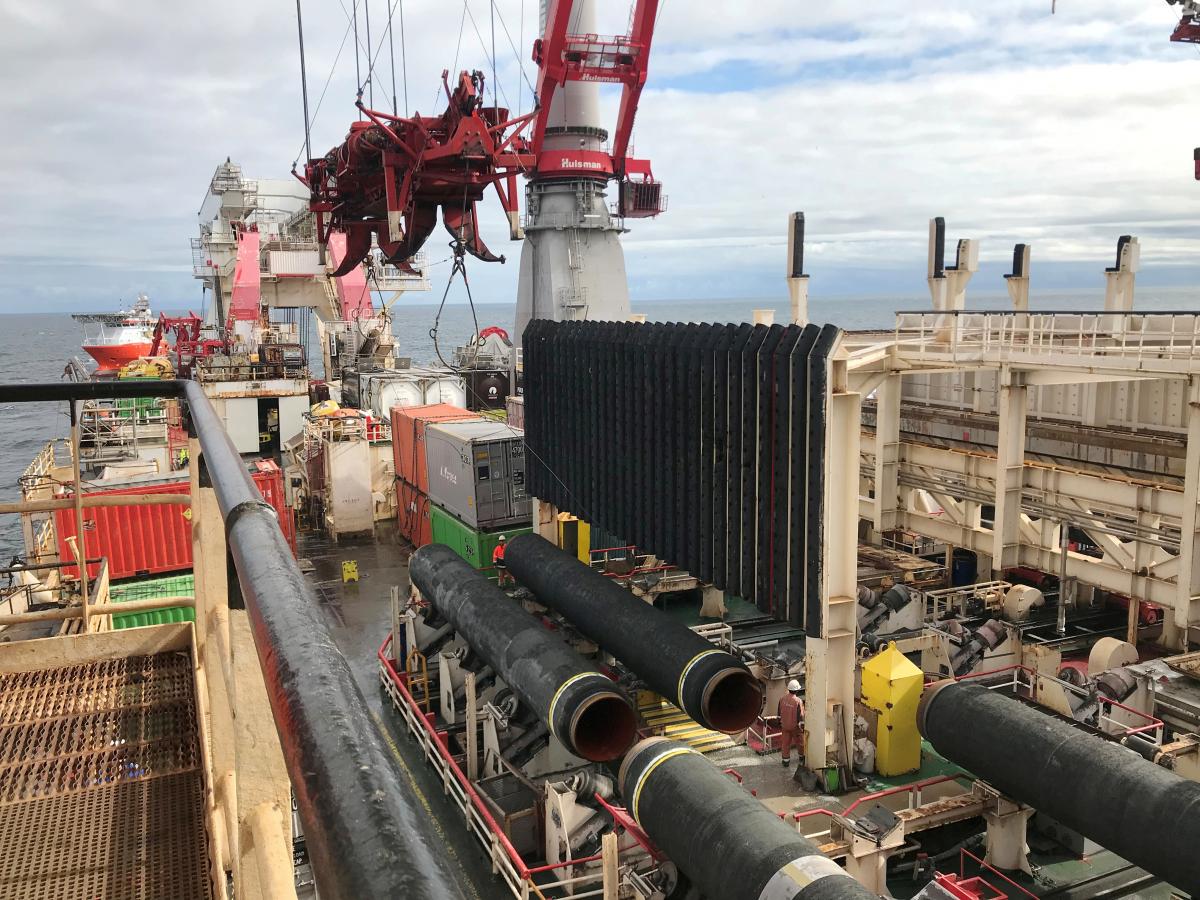
At least 18 European companies have either terminated their participation in the Nord Stream 2 pipeline or have pledged to withdraw from the project over threats of U.S. sanctions, according to a U.S. State Department report for Congress.
"This shows that the legislative goals and our actions have been successful," said Ned Price, a spokesman for the U.S. State Department. "We continue to monitor companies involved in potentially sanctionable acts," Deutsche Welle wrote.
Most of the companies terminating their participation are insurance companies, the majority of which are based in the United Kingdom.
Read alsoU.S. makes changes to OFAC's SDN list by including Russia vessel over Nord Stream 2Among them are Munich-based insurer Munich Re Syndicate Limited and Switzerland-based Zurich Insurance Group. Axa Group, based in Paris, and civil engineering group Bilfinger of Mannheim have also terminated their involvement, according to the U.S. State Department.
U.S. allies should "not be surprised" if the administration takes further action, Price said.
Nord Stream 2: Background
The Nord Stream 2 project envisages the construction and operation of two gas pipeline branches with a total throughput capacity of 55 billion cubic meters of natural gas per year from the coast of Russia through the Baltic Sea to Germany. It should connect Russia's Ust-Lug and Germany's Greifswald. This new pipeline bypassing Ukraine is to be built next to the existing Nord Stream 1 pipeline.
The construction of the pipeline was expected to be completed before the end of 2019.
The pipeline will be 1,220 km long. The project is being implemented by Russia's Gazprom in alliance with European companies – ENGIE, OMV, Royal Dutch Shell, Uniper, and Wintershall. Ukraine stands against the construction of Nord Stream 2 as it will most likely lose its status of a gas transit country, while its potential revenue losses are estimated at US$3 billion annually. The project is also highly criticized by the U.S., Poland, and the Baltic States.
On November 4, 2020, the media reported that U.S. Congress wanted to expand sanctions against Nord Stream 2 and TurkStream.
On December 6, 2020, United States Charge d'Affaires to Germany Robin Quinville called on the EU and Germany to declare a moratorium on the construction of the Nord Stream 2 gas pipeline.
On December 9, 2020, the U.S. House of Representatives approved the 2021 National Defense Authorization Act (NDAA) with expanded restrictions against the Russian Nord Stream 2 gas pipeline.
On December 11, 2020, the construction of the Nord Stream 2 gas pipeline resumed.
On December 29, 2020, it became known that the House of Representatives overcame the-then President Donald Trump's veto on the U.S. defense budget with sanctions on Nord Stream 2.
The United States is urging European allies and private companies to halt works on Nord Stream 2, and is preparing broader sanctions against the Russian project in the coming weeks.
The U.S. Senate approved the U.S. defense budget for the fiscal year 2021, which provides for new sanctions against Russia's Nord Stream 2.
On January 7, 2021, a fund was established in Germany to support the completion of the Nord Stream 2 project.
On January 13, 2021, the U.S. Department of State notified European companies involved in the construction of Nord Stream 2 of the risk of imposing new sanctions.
On February 22, the United States made changes to the Specially Designated Nationals (SDN) List of the Office of Foreign Assets Control (OFAC) by including a Russian-flagged vessel Fortuna involved in the construction of the Nord Stream 2 gas pipeline.

